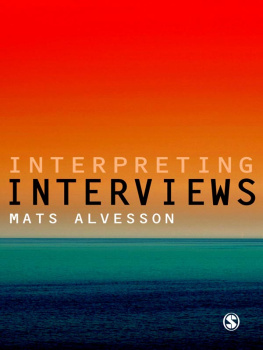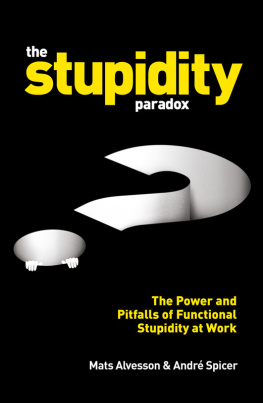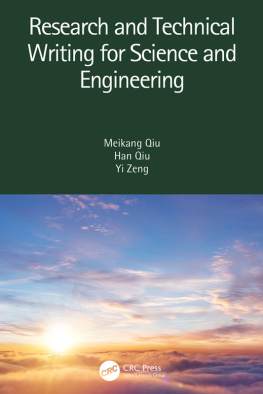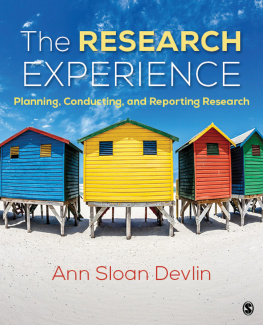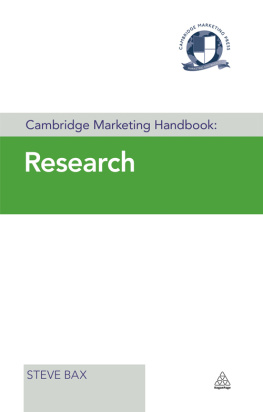Re-Imagining the Research Process
Conventional & Alternative Metaphors
Re-Imagining the Research Process
Conventional & Alternative Metaphors
- Mats Alvesson
- & Jrgen Sandberg

- Los Angeles
- London
- New Delhi
- Singapore
- Washington DC
- Melbourne
SAGE Publications Ltd
1 Olivers Yard
55 City Road
London EC1Y 1SP
SAGE Publications Inc.
2455 Teller Road
Thousand Oaks, California 91320
SAGE Publications India Pvt Ltd
B 1/I 1 Mohan Cooperative Industrial Area
Mathura Road
New Delhi 110 044
SAGE Publications Asia-Pacific Pte Ltd
3 Church Street
#10-04 Samsung Hub
Singapore 049483
Mats Alvesson and Jrgen Sandberg 2021
Apart from any fair dealing for the purposes of research, private study, or criticism or review, as permitted under the Copyright, Designs and Patents Act, 1988, this publication may not be reproduced, stored or transmitted in any form, or by any means, without the prior permission in writing of the publisher, or in the case of reprographic reproduction, in accordance with the terms of licences issued by the Copyright Licensing Agency. Enquiries concerning reproduction outside those terms should be sent to the publisher.
Library of Congress Control Number: 2021932853
British Library Cataloguing in Publication data
A catalogue record for this book is available from the British Library
ISBN 978-1-5297-3215-3
ISBN 978-1-5297-3214-6 (pbk)
Editor: Ruth Stitt
Assistant editor: Jessica Moran
Production editor: Manmeet Kaur Tura
Copyeditor: Sarah Bury
Proofreader: Elaine Leek
Indexer: Cathryn Pritchard
Marketing manager: Lucia Sweet
Cover design: Naomi Robinson
Typeset by: C&M Digitals (P) Ltd, Chennai, India
Printed in the UK
At SAGE we take sustainability seriously. Most of our products are printed in the UK using responsibly sourced papers and boards. When we print overseas we ensure sustainable papers are used as measured by the PREPS grading system. We undertake an annual audit to monitor our sustainability.
List of Tables
- 55
- 61
- 68
- 74
- 84
- 91
- 97
- 106
- 112
- 118
- 127
- 133
- 140
Preface
Like many others we often doubt the meaningfulness and relevance of social research. Many, if not most academics follow established scientific ways for doing and conducting research, but their results are often predicable and boring. Conventional ideas and rules for doing social research are helpful, but also constraining and seem to work against imagination, creativity and thus interesting results. As Murray Davis has emphasized, social science needs to be seen as interesting in order to have influence. We think we can do much better than we currently do, and suggest that working with alternative metaphors for the research process can be very helpful in generating more imaginative and interesting research. It can lead to mind-stretching and rejuvenated research through re-imagining various key elements in the research process. This is what we set out to do in this book.
We would like to thank Ron Barnett, Yvonne Billing, Martin Blom, Yiannis Gabriel, Rolf Lind and Roland Paulsen for helpful comments on a draft of the book.
Some of the ideas in this book first appeared in Alvesson, M., & Sandberg, J. (2018). Metaphorizing the research process: Reflexivity, imagination and novelty. In C. Cassell, A. Cunliffe & G. Grandy (Eds.), The Sage handbook of qualitative business and management research methods: Methods and challenges (pp. 486505). London: Sage.
Mats Alvesson and Jrgen Sandberg
Lund and Brisbane January 2021
About the Authors
Mats Alvessonholds a chair in the Business Administration department at Lund University in Sweden and is also part-time professor at University of Queensland (UQ) Business School, Australia and at City University, London, UK. He has done extensive research and published widely in the areas of qualitative and reflexive methodology, critical theory, organizational culture, knowledge work, identity in organizations, gender, organizational change, leadership, etc. His latest books include
Reflexive leadership: Organizing in an imperfect world (with Blom and Sveningsson, Sage, 2017) and
Return to meaning: A social science with something to say (with Gabriel and Paulsen, Oxford University Press, 2017).Jrgen Sandbergis Professor in the University of Queensland (UQ) Business School, Australia, and at Warwick Business School, UK, as well as Co-Lead of Practice and Process Studies, a multidisciplinary research group within the UQ Business School. He has researched and published extensively in the areas of competence and learning in organizations; practice, process, sensemaking theory; theory development; philosophy of science; and research methodology. His most recent books include
Skillful performance: Enacting capabilities, knowledge, competence and expertise in organizations (with Rouleau, Langley and Tsoukas, Oxford University Press, 2017), and
Constructing research questions: Doing interesting research (with Alvesson, Sage, 2013). He also serves on the editorial boards for
Academy of Management Review,
Journal of Organizational Behavior and
Organization Studies.
Introduction: Making research more imaginative and interesting
Thinking about how we can improve the way we develop knowledge is a key concern in academia. Often such thinking means learning how to conduct research in a rational and reliable way. The use of scientific methods is thus a cornerstone in the activities of the social researcher. Although following strict methodological guidelines is most salient in quantitative studies, it is also common in most qualitative research. Rationality and rigour are seen as the foundation for developing scientific knowledge and social research are seldom on the safe side when it comes to demonstrating these virtues. The messiness and indeterminacy of many social phenomena, as well as the importance of the researchers paradigmatic background and his or her idiosyncrasies, make both the doings and the results of social research ambiguous. There are also situation-specific influences on responses from those being studied: they may produce different accounts about an issue depending on how the interviewer is perceived. For example, a young ethnic woman with an accent from a sociology department or an older white man with an upper-middle-class background from a business school may trigger different responses even if the interview questions are the same. Much social research is disputed or disputable. Relying on responses to a questionnaire or what people say in interviews may be seen as a rather uncertain foundation for establishing the truth. But as they are established methods, researchers tend to use them regularly without much signs of doubt or worry. However, rather than denying or marginalizing the ambiguity and messiness of social research it could be acknowledged, and options for thinking seriously about and dealing with it could be considered. Such considerations call for reflexivity rather than a recipe-following view on research.


